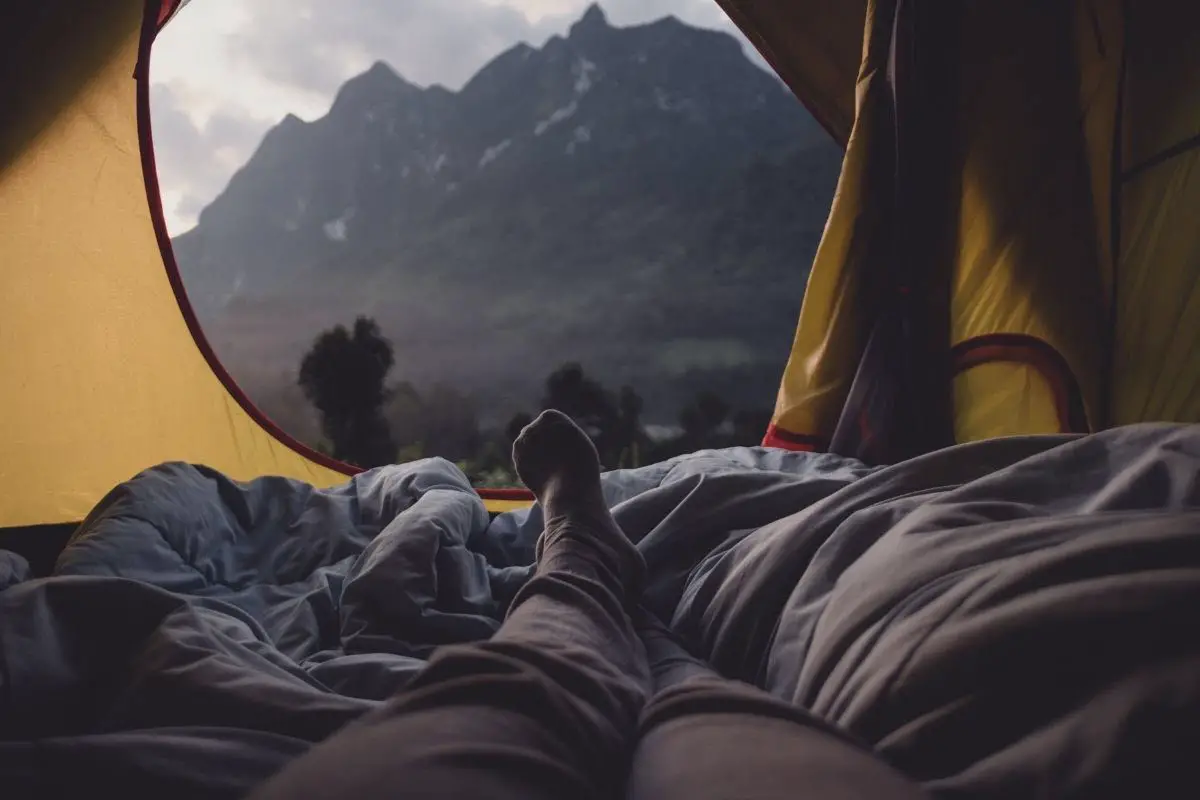5 Easy Tips for an Eco Friendly Camping
Springtime is finally here after a long, cold winter and I can’t wait to head out into the great outdoors once again. It’s important to reconnect with nature after this crazy year.
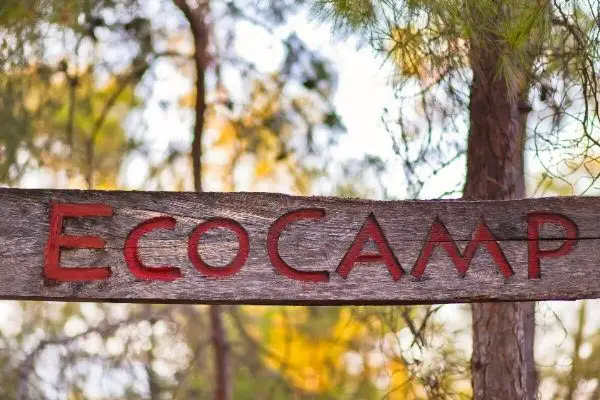
But with so many people flooding the wilderness, desperate for their nature fix, I sometimes wonder if camping really is an eco-friendly activity and how it can be done in an eco-conscious way. Individual actions may seem small and insignificant but repeated by many campers and they can be impactful – for good and for bad!
I gathered together some helpful tips for keeping your trip as green as possible to preserve the great outdoors for generations to come.
Tip 1: Pick the Right Campsite and the Right Time
When picking a campsite, there are a few things to factor into your decision.
Some campsites come with electrical hook-ups that are powered by renewable energy like solar power. If you’re going to need to charge some devices on your trip, this is a real bonus for an eco friendly trip.
When campsites are busy during peak season, they can place a lot of strain on the local environment. Avoid the more popular parks during the months for a more peaceful and less concentrated impact on the local environment.
But sticking to designated campsites is better for reducing the impact you might have. Dispersed or wild camping (camping not on designated land) is legal in some places but not everywhere, so make sure to check beforehand!
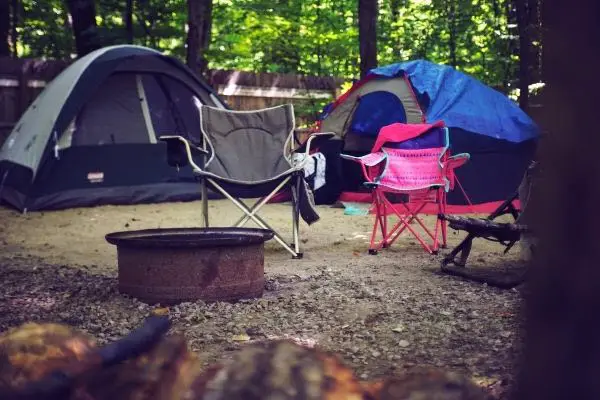
If you are going dispersed camping, you need to be extra careful not to damage vegetation when you pitch your tent. Looking for spots where people have camped before do reduce your impact.
You also have to be aware that without proper facilities, it can make things more tricky when nature calls… But we’ll get to that later on.
You should think about how you’re going to get to your campsite as well. It might be a struggle to take the family camping and use public transport for any length of time, so stay local and enjoy your trip.
If the kids are old enough that the thought of wrangling them onto a bus with a backpack each doesn’t give you heart palpitations, then you can open yourself up to greener travel options. You could even try bikepacking and cycle to your campsite!
Tip 2: Make Smart Purchases
If you’re new to camping, it can seem like a LOT of gear to buy at the beginning. Whatever sort of trip you are planning, you’re going to need more than just a tent to have a good time.
It can be tempting to opt for low-cost tents when you start camping, especially if you aren’t sure if it’s a hobby for you.
But these tents are usually the most harmful to the environment, being manufactured in poor conditions and produced using harmful processes which keep the cost to your purse low but the cost to the environment is high.
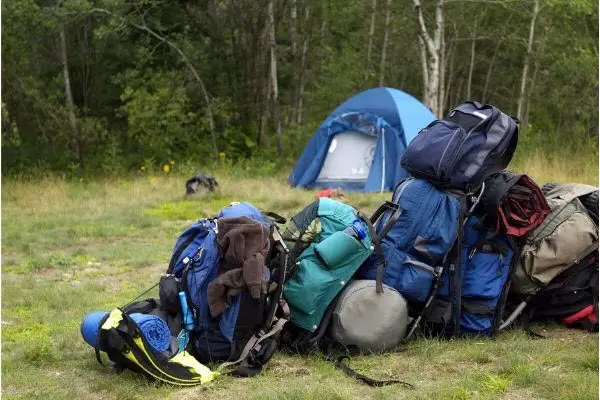
If you don’t have the cash to splash on a tent that won’t hurt the planet, then you can rent some gear from outdoor shops. They will be happy to assist you and make sure you understand how to set it up properly which can be a great help.
Rather than renting, you can also buy your gear second-hand. This can be cheaper than renting continually. If you need some new (to you) clothes for your trip, check out these online thrift stores for some eco-friendly clothing.
Alternatively, if you’ve got friends who are already camping fanatics, ask them if you can borrow a few bits of equipment to keep the cost of manufacturing gear low.
Finally, it should be pretty obvious but we’ll just reiterate it in case anyone is getting tempted by the allure of convenience – DON’T GO FOR SINGLE-USE.
Don’t buy paper plates or plastic cutlery. They are handy because you don’t have to worry about cleaning up afterward. But you can easily clean plates and cooking utensils in the wilderness with a little water and some biodegradable soap.
Bonus Hint
Double-check you’ve got everything you need for your trip before you leave! The last thing you want to do is forget your convenient big water carrier and end up having to buy a case of plastic water bottles.
Tip 3: Leave No Trace
If you’ve ever heard of the phrase “take only photographs, leave only footprints” then you’ll already be pretty aware of the principles of Leave No Trace.
One of the key principles is to pack out everything that you pack in. In other words, don’t leave anything at your campsite when you leave that wasn’t already there. That might sound obvious for some things, like plastic wrapping from food waste, but that’s not the only waste you need to consider…
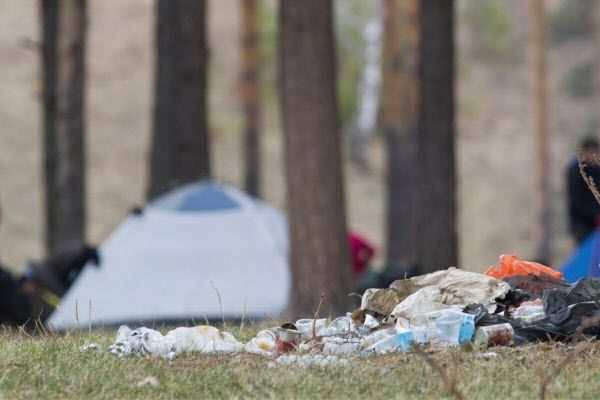
Everybody poops. It’s a fact of life, and unfortunately, you can’t stop nature from taking its course even in the wilderness. So what are you going to do?
Well, the first thing you’ll need to do is dig a cathole, a hole about 6 to 8 inches deep in the ground. It’s recommended to bring a trowel for this. Make sure your cathole is at least 200 feet away from any water source, campsite or trail.
Then… aim as best as you can as you go about your business. Cover it back up with the soil you moved after you’ve finished.
But don’t bury any toilet paper in your cathole. This counts as waste that, I’m sorry to say, you have to pack out with you as well.
You can get smell-proof bags (and you probably should…) and cover them in duct tape or anything that will block the sight and smell.
The principles of Leave No Trace are guidelines to help outdoor adventures to preserve the environment when they are in the great outdoors. Make sure you familiarise yourself fully with all of the guidelines of Leave No Trace before heading out into the wilderness.
Tip 4: Be Safe with Fires
Sitting around a campfire toasting marshmallows and telling spooky stories is a camping tradition but if you’re not careful, they can have devastating impacts on the local environment.
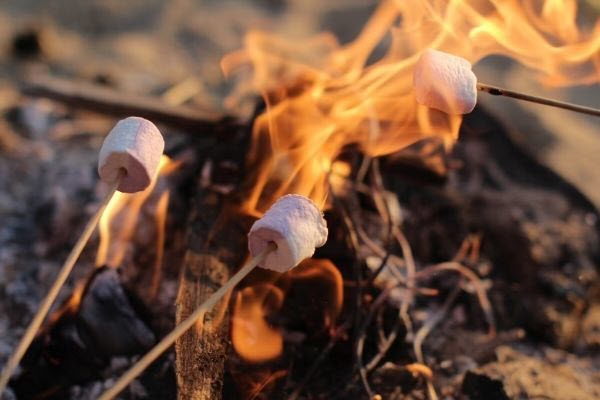
Make sure to check whether you’re allowed fires in the area you’re camping before you go out. The last thing you want is to hype up the trip, promising family time around an open fire, only to find out when you get there that actually they’re banned.
Learn how to safely light a fire and keep it small and manageable. You should use rocks to form a fire ring to contain the campfire.
Bonus Hint
Be careful of fires the day after they have been extinguished. The morning after a campfire is actually when most pediatric burns happen. Ashes can still be smoldering from the night before and curious kids might not understand how hot they can be.
Extinguish fires properly by pouring water over them. Never leave a fire unattended until it is fully extinguished and make sure the ground has cooled before you leave your campsite.
Tip 5: Store Everything Properly
Congrats on a successful eco-camping trip! I hope you’ve had a great time and minimized the impact you might have on the environment.
Now what? Our last tips is for the after-trip.
It’s really important to remember to store your gear safely after your trip. If there was some rain when you were packing up, the next time the sun is shining take everything out and make sure it’s all completely dry.
Damp gear can result in mildew and give your tent a musty odor. It can also potentially damage the waterproof coating on the tent which can’t be repaired, leaving you with a smelly, leaky tent.
So make sure you store all of your gear dry and clean to keep it lasting as long as possible.
Final Thoughts
Camping is good, green camping is better! I hope your next camping trip will be as green as a tree with our tips, hints, and advice.
The only thing that’s left to do is tell everyone how much fun you had! Make sure to share any advice you found helpful with others and spread the word about being a good eco camper.

